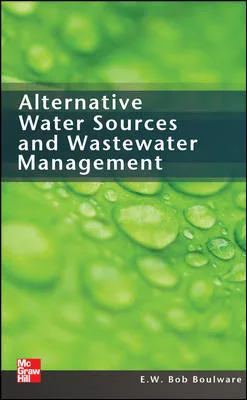Cleaning Up With Clean Water Report
Product Focus: Water Softeners
Water softeners use a few different methods to operate, but essentially the equipment "exchanges" hard minerals for either sodium or potassium. According to the Water Quality Association, some equipment also may reduce levels of arsenic, nitrates and mercury.
Softeners are available in several sizes and are rated by the amount of hardness they can remove.
The downside to water softeners is the amount of sodium added to the water. That could be unsafe for some people, but typically, people like the taste of hard water much better than soft. As a result, cold water tap lines are usually purposely left unsoftened (although, not necessarily untreated).
The following products are just a few of the newest additions to the water softener market.

Water Softener With 'ESP'
The solid state Ultra computerized demand water softener from North Star Water Conditioning features its technically advanced "ESP" computer system for greater serviceability. The computer constantly checks the softener's capacity and determines when the next regeneration would occur, helping to assure an ample supply of soft water and saves money on salt and water.Solutions For Point-Of-Entry
Cuno's line of water softeners are designed to deliver soft water to equipment areas where it is fully beneficial. Partially softened water delivered to food service equipment as needed, and zero hardness water to high temperature applications. The Maximizer valve adjusts salt usage and allows the regeneration cycle to be set to match the operation's consumption.
Automatic Water Softener
American Plumber makes it easier for you to help your customers experience the benefits of softened water. Its line of automatic water softeners, available in either a twin tank or space-saving cabinet style, offers state-of-the-art efficiency in sizes from 25,000 up to 90,000-grain capacity, including a 32,000-grain combination water softener/iron reduction system.Compact Water Softener
BWT now offers the Optimo water softener. By integrating fine mesh resin with a unique brine distribution system, this compact softener regenerates on demand with only 4 gallons of water and 2/3 lb. of salt. Saving hundreds of dollars in salt and water usage, its environmentally-friendly specifications meet all federal and state brine regulations with flow rates up to 8 gpm.Looking for a reprint of this article?
From high-res PDFs to custom plaques, order your copy today!





